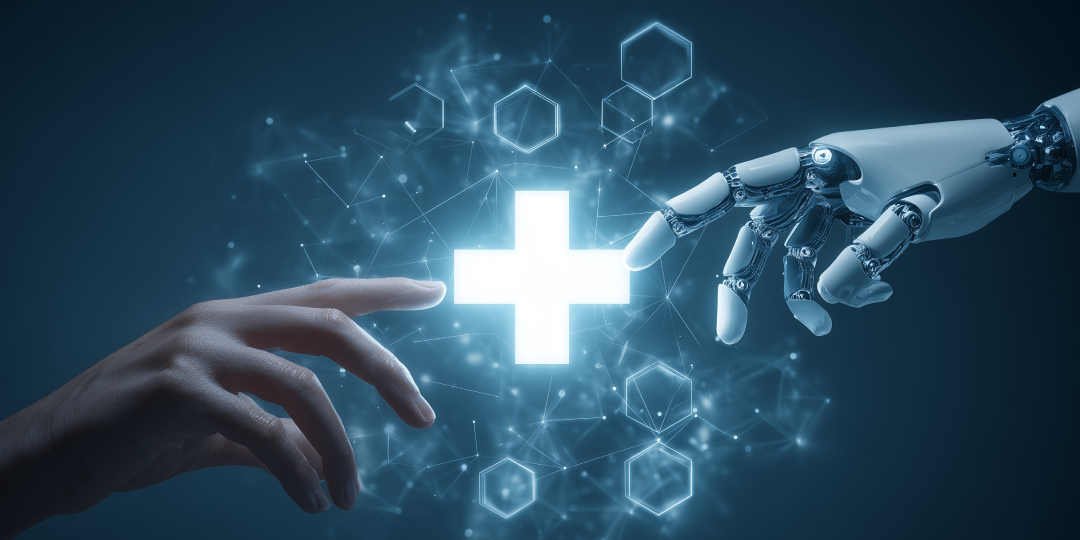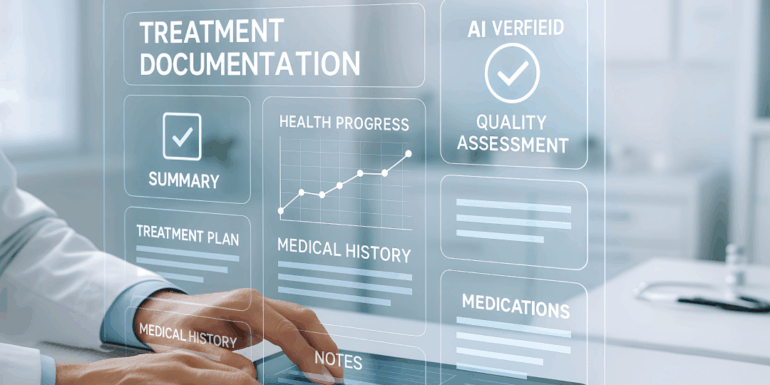Few innovations have captured both the excitement and uncertainty of the healthcare industry quite like artificial intelligence. While headlines often focus on automation and job displacement, the real story is far more complex and far more hopeful. AI isn’t replacing healthcare professionals but redefining what their work looks like.
From clinical decision-making to administrative efficiency, artificial intelligence is changing the way healthcare systems operate. And as it does, it’s also creating new opportunities, new roles, new skill sets, and new ways for people and technology to work together toward better patient outcomes.
Table of Contents
Redefining, Not Replacing
The idea that AI will replace healthcare workers oversimplifies how care is delivered. Healthcare has always relied on human connection, and these are qualities no algorithm can replicate.
Instead, AI acts as an amplifier. It supports the workforce by taking on time-consuming, repetitive tasks like analyzing lab data, predicting patient flow, and streamlining documentation, so that clinicians can focus on what matters most: direct patient care.
In radiology, for example, AI-assisted imaging tools can flag potential abnormalities faster than a human can scan hundreds of images, but it’s the radiologist who interprets those findings, contextualizes them, and communicates them to the patient’s care team. In this way, technology enhances accuracy and efficiency without replacing expertise.
The Rise of New Roles
As artificial intelligence expands within healthcare, it’s also giving rise to entirely new job categories. Data analysts, AI system trainers, algorithm auditors, and digital ethicists are now becoming integral parts of hospital and health network teams.
These roles didn’t exist a decade ago, and they speak to a larger trend: technology doesn’t eliminate human work, it evolves it. Where once a clinic may have needed additional staff to manage paperwork, today it needs professionals who can manage data pipelines, ensure regulatory compliance, and translate insights into actionable care decisions.
Even clinical staff are seeing their roles evolve. Nurses and physicians are increasingly expected to understand how AI tools integrate into their workflows, looking at how predictions are made, what the data represents, and how to balance automated recommendations with professional judgment.
AI and Wait Time: A Case Study in Efficiency
One of the most immediate examples of AI supporting the healthcare workforce is in managing wait times. Predictive models can analyze historical appointment data, patient flow patterns, and staffing levels to anticipate high-volume periods.
For front-desk staff and administrators, that means fewer scheduling conflicts. For nurses and physicians, it means more manageable caseloads. And for patients, it means shorter waiting periods and more personalized care.
AI doesn’t remove the people who make these systems work, but rather it empowers them to make better, faster decisions. The front-line staff remain essential; AI simply gives them more visibility into what’s happening and what’s coming next.

Upskilling for the Future
The integration of AI into healthcare heightens the importance of human expertise. As systems grow more data-driven, healthcare professionals will need to develop complementary skills: understanding data literacy, learning how AI models function, and interpreting algorithmic insights in real time.
Many organizations are already prioritizing training programs that bridge this gap. Just as the introduction of electronic medical records once reshaped healthcare operations, AI is prompting a similar shift that rewards adaptability and interdisciplinary collaboration.
This shift isn’t about coding or programming; it’s about the ability to translate between clinical knowledge and technological insight. Professionals who can do both will be essential in the next phase of healthcare innovation.
Ethical Collaboration Between Humans and Machines
Another emerging focus is the ethics of human-machine collaboration. As AI becomes more embedded in patient care decisions, healthcare systems are developing protocols to ensure transparency, accountability, and bias management.
These conversations about who is responsible when AI assists in clinical recommendations or administrative decisions are not reducing human roles; they’re expanding them. We now need professionals who not only understand care but also understand how to oversee intelligent systems with integrity.
The Human Element Remains Central
Technology may change how we deliver care, but not why we deliver it. Compassion, communication, and critical thinking remain at the heart of medicine. AI may provide data, but it cannot comfort an anxious patient or build trust through empathy. Those remain distinctly human contributions, and they’re more valuable than ever in an increasingly digital healthcare environment.
As AI continues to evolve, so will the definition of healthcare work. We’ll see more collaboration across disciplines: data scientists partnering with physicians, engineers working alongside administrators, and ethicists guiding AI development with patient-centered values.
A Future Built on Partnership
The story of AI and healthcare jobs is not one of replacement, but of partnership. As systems grow smarter, the people who design, use, and oversee them will become even more important. The healthcare workforce of the future will be defined not by competition with technology, but by collaboration with it.
AI offers a chance to reimagine the workplace, to eliminate inefficiencies, improve safety, and expand access to care. But at its core, healthcare will always be a human endeavor. AI is simply helping us do it better.
